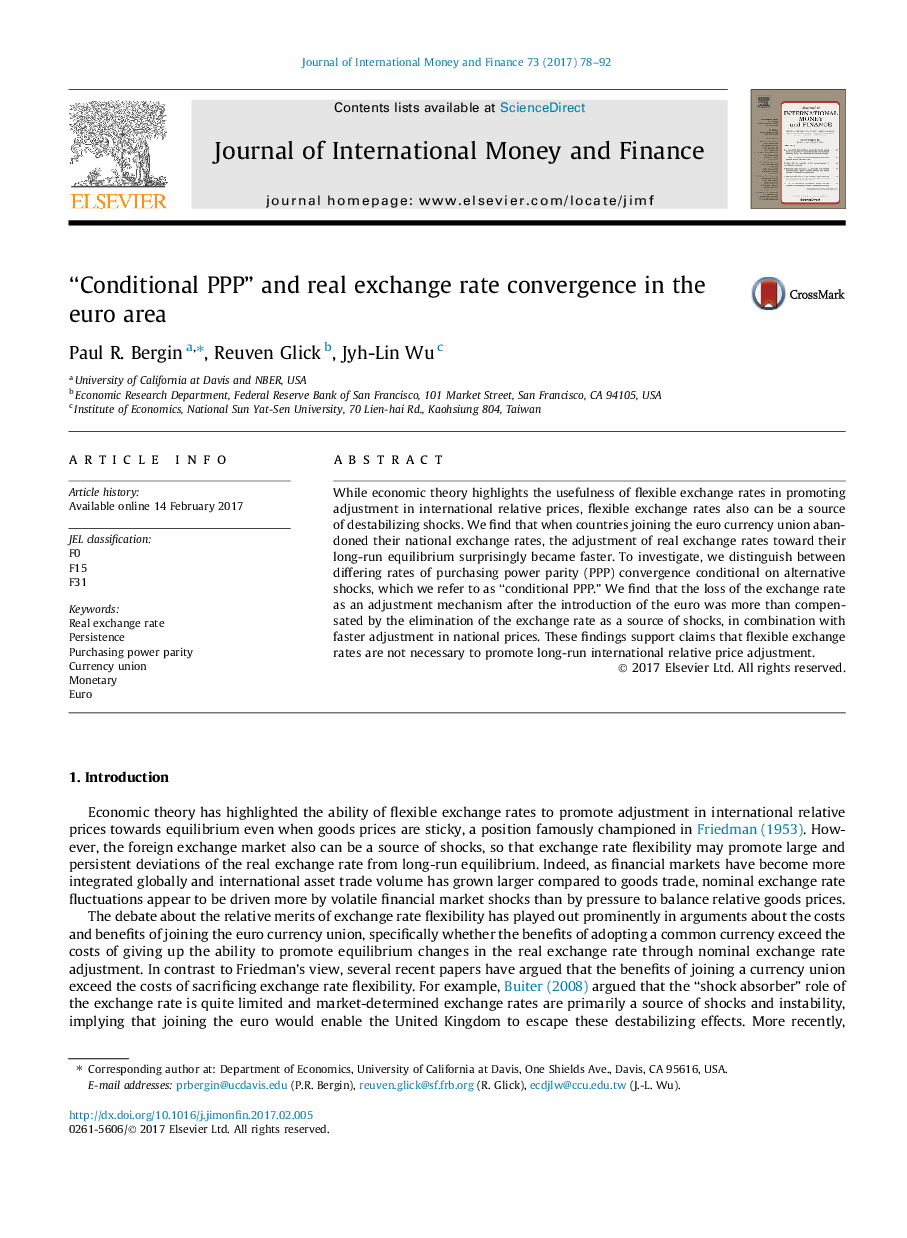| Article ID | Journal | Published Year | Pages | File Type |
|---|---|---|---|---|
| 5101159 | Journal of International Money and Finance | 2017 | 15 Pages |
Abstract
While economic theory highlights the usefulness of flexible exchange rates in promoting adjustment in international relative prices, flexible exchange rates also can be a source of destabilizing shocks. We find that when countries joining the euro currency union abandoned their national exchange rates, the adjustment of real exchange rates toward their long-run equilibrium surprisingly became faster. To investigate, we distinguish between differing rates of purchasing power parity (PPP) convergence conditional on alternative shocks, which we refer to as “conditional PPP.” We find that the loss of the exchange rate as an adjustment mechanism after the introduction of the euro was more than compensated by the elimination of the exchange rate as a source of shocks, in combination with faster adjustment in national prices. These findings support claims that flexible exchange rates are not necessary to promote long-run international relative price adjustment.
Related Topics
Social Sciences and Humanities
Economics, Econometrics and Finance
Economics and Econometrics
Authors
Paul R. Bergin, Reuven Glick, Jyh-Lin Wu,
